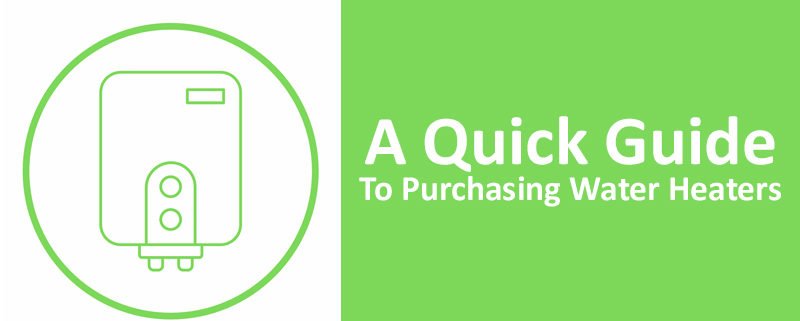A Quick Guide to Purchasing Water Heaters
Selecting a Water Heater
Over the last several years new advances in water heating technology have given the consumer many more choices than even just a short time ago. New heaters are more efficient, keep water at temperature longer, are quieter, and can save you lots of money over the life of the heater.
There are a few things you will want to keep in mind when choosing a water heater.
- The size of your home
- Budget
- Hot water needs
- Geographic location
Home size and budget are going to be your two major concerns followed by your hot water needs and geographic location.
Types of Water Heater
The most basic type of heater that everyone is familiar with is the tank-style of water heater. These are among the least-efficient options in heating water, however they are the least-expensive and they have gotten more efficient than they have been in the past. They will provide a lot of hot water over a long period of time.
One option for people in the sunnier parts of the US is solar. Solar is exactly as it sounds and will use the sun’s energy to heat water. Their downsides are weather, cost, and need for a supplemental water heater. The initial cost of these can be high and you will also need another water heater to help out when the sun isn’t out.
Inline water heaters are a new style of heater that has become popular over the last few years. They are among the most efficient systems however their initial cost can be a little high. Inline heaters only heat the water as it is passing through the unit itself. This saves a lot on heating costs however you may need to have more than one, which will raise the initial costs.
You can think of heat pump water heaters as something like a reverse air conditioner for your water. Very much like your ac run in reverse, these systems heat by moving heat energy from one area to the desired area. They are very efficient however to operate best they will need to be placed in an area that has fairly steady temperatures and won’t get too cold.
Follow the Palo Alto Plumbing Heating & Air blog for all the latest plumbing and HVAC information.




